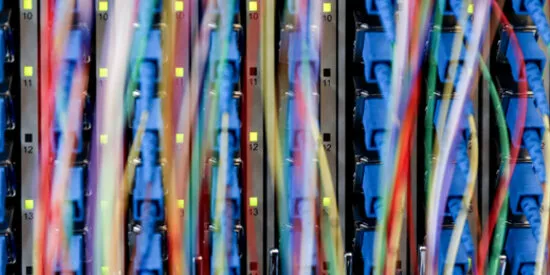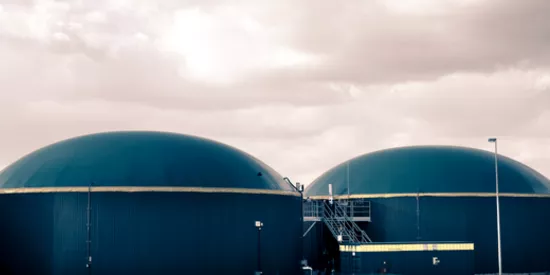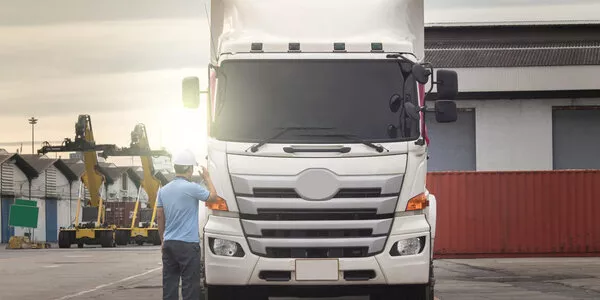
Powering economic development in Indonesia
Jawa-1, Asia Pacific's largest LNG-to-power project, fuels Indonesia's development on its way for energy transition
According to the Asian Development Bank[1], the Jawa-1 project is expected to power 11 million Indonesia households from 2021, further contributing to the country's goal of universal electricity access by 2024. From an economic standpoint, the project will create about 4,800 jobs during construction and 125 jobs when the plant is operational.
Indonesia, with an increasing population, is the largest economy in Southeast Asia; its GDP per capita has steadily risen from $807 in the year 2000 to $3,877 in 2018[2].
In addition to a growing economy, the country is experiencing a rising energy demand - expected to increase 75% by 2040[3]. Even though it produces twice as much natural gas as it consumes[4], Indonesia, being an archipelago, is not equipped with a country-wide pipeline for distribution. Consequently, there is a shortage of gas for domestic industries in some areas like Java[5].
In this context, the construction of Jawa-1 will help Indonesia increase its energy security and fuel its economic development. Jawa-1 will be Indonesia's and Asia Pacific's first integrated LNG-to-power project. The use of natural gas in power generation provides a cleaner alternative to coal[6] which will help to meet domestic demand while on the country's path to reduce its Greenhouse Gas (GHG) emissions by 29% by 2030[7].
The deal - one of the quickest in Asia from award of the project to financial close - was made possible through a priority public-private partnership between the Indonesia State Electricity Corporation (PLN) and a consortium consisting of Marubeni Corporation, Pertamina Power Indonesia and Sojitz Corporation to undertake the development, financing, construction, and operation of the plant.
The new site will be inclusive of a 1,760 megawatt (2 x 880MW) combined-cycle gas turbine power plant, liquid natural gas (LNG) floating storage and registration unit (FSRU), and additional facilities including mooring facilities, gas pipelines, substation and transmission lines with PLN acting as sole offtaker.
To help achieve the goals set out at the Climate Change Conference in Paris (COP21) to limit global warming to below 2°C by 2020, natural gas plays a key role as a transition energy to decrease reliance on coal and oil in the energy mix[8]. The innovative and integrated Jawa-1 project in Indonesia is one example of Societe Generale's commitment to fight against climate change and finance energy transition. In December 2017, Societe Generale committed to raising EUR 100 billion in financing earmarked for the energy transition between 2016 and 2020. By the second quarter of 2019, the Group had already achieved 89% of its goal[9].
Natural gas is increasingly becoming a reliable and affordable source of power generation in the region and will play a key role as a transition fuel towards a cleaner and more sustainable energy matrix. LNG-to-power solutions are expected to multiply in South East and South Asia, and Jawa-1 is the first illustration of this growing trend. A number of Asian countries that have not imported natural gas previously are expected to do so over the next few years, thus leading to more balanced energy mix and a lesser dependence on coal as a fuel. As a global leader for financing and advisory services for the LNG sector, Societe Generale is committed to playing an active role in supporting clients with their energy transition and promoting sustainable development in the country.
Head of Natural Resources and Infrastructure for Asia Pacific, Societe Generale Corporate & Investment Banking
Societe Generale acted as the Mandated Lead Arranger, Sole Contingent Hedge Provider, Hedge Provider and E&S Bank on the approximately USD 1.3bn project financing debt.
[1] https://www.adb.org/news/adb-finances-largest-combined-cycle-power-plant-indonesia
[2] https://www.worldbank.org/en/country/indonesia/overview
[3] https://www.iea.org/topics/energyefficiency/e4/indonesia/
[4] https://www.indonesia-investments.com/business/commodities/natural-gas/item184?
[5] https://www.indonesia-investments.com/business/commodities/natural-gas/item184?
[6] https://www.igu.org/natural-gas-cleanest-fossil-fuel
[7] https://www.wri.org/blog/2017/10/evaluating-indonesias-progress-its-climate-commitments
[8] https://www.societegenerale.com/sites/default/files/documents/Document%20RSE/Environnement/fortheclimate.pdf
[9] https://www.societegenerale.com/en/measuring-our-performance/csr/environment




